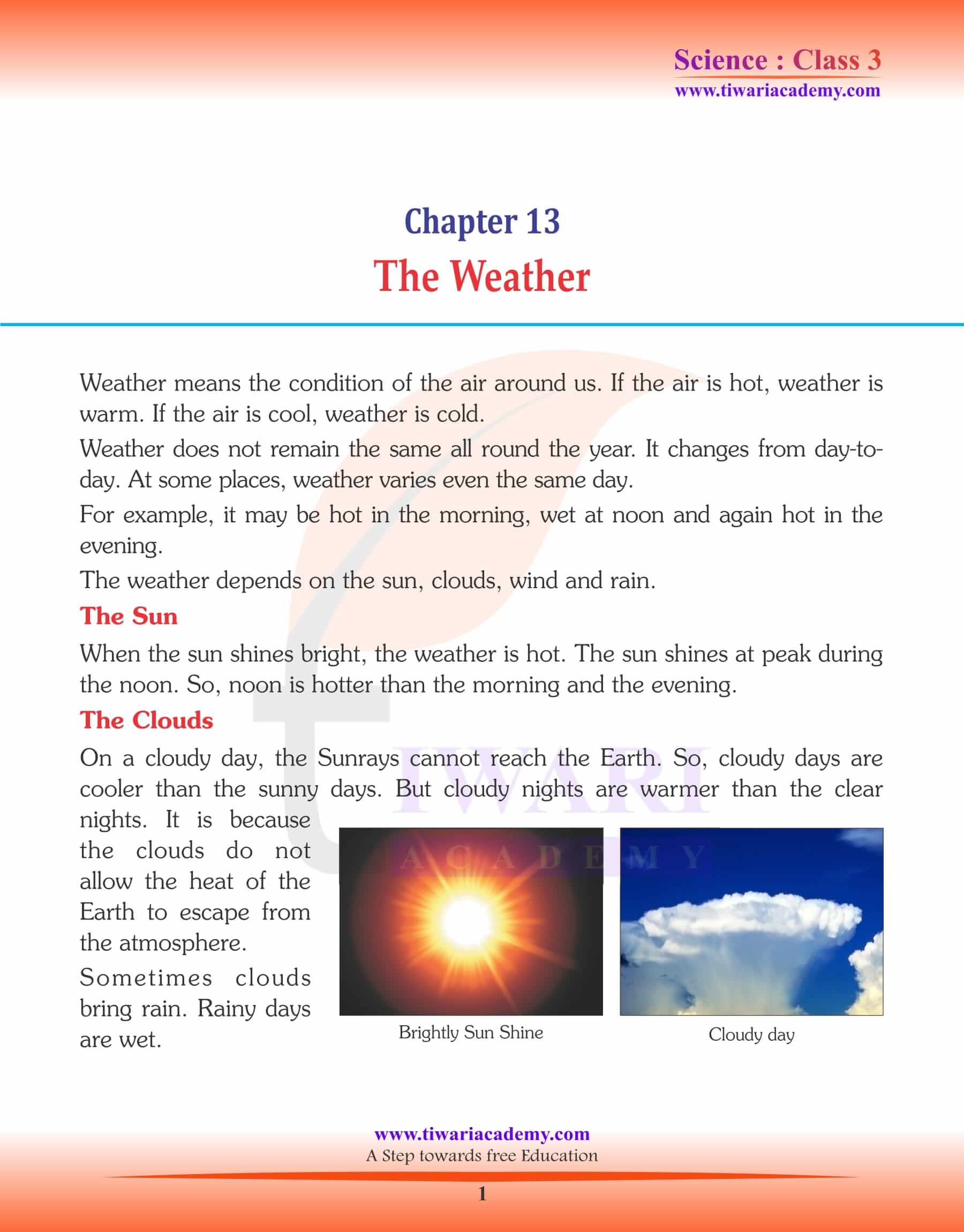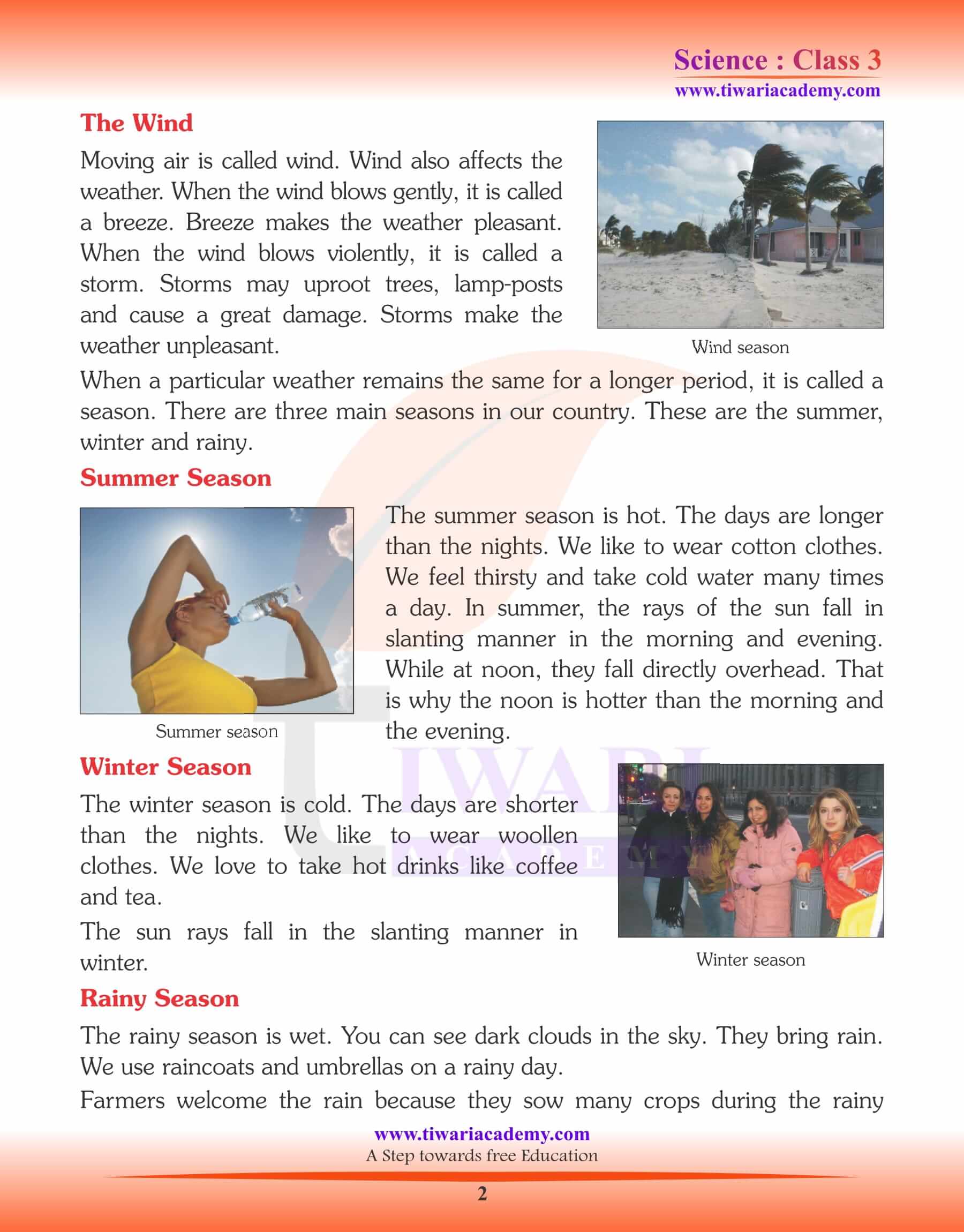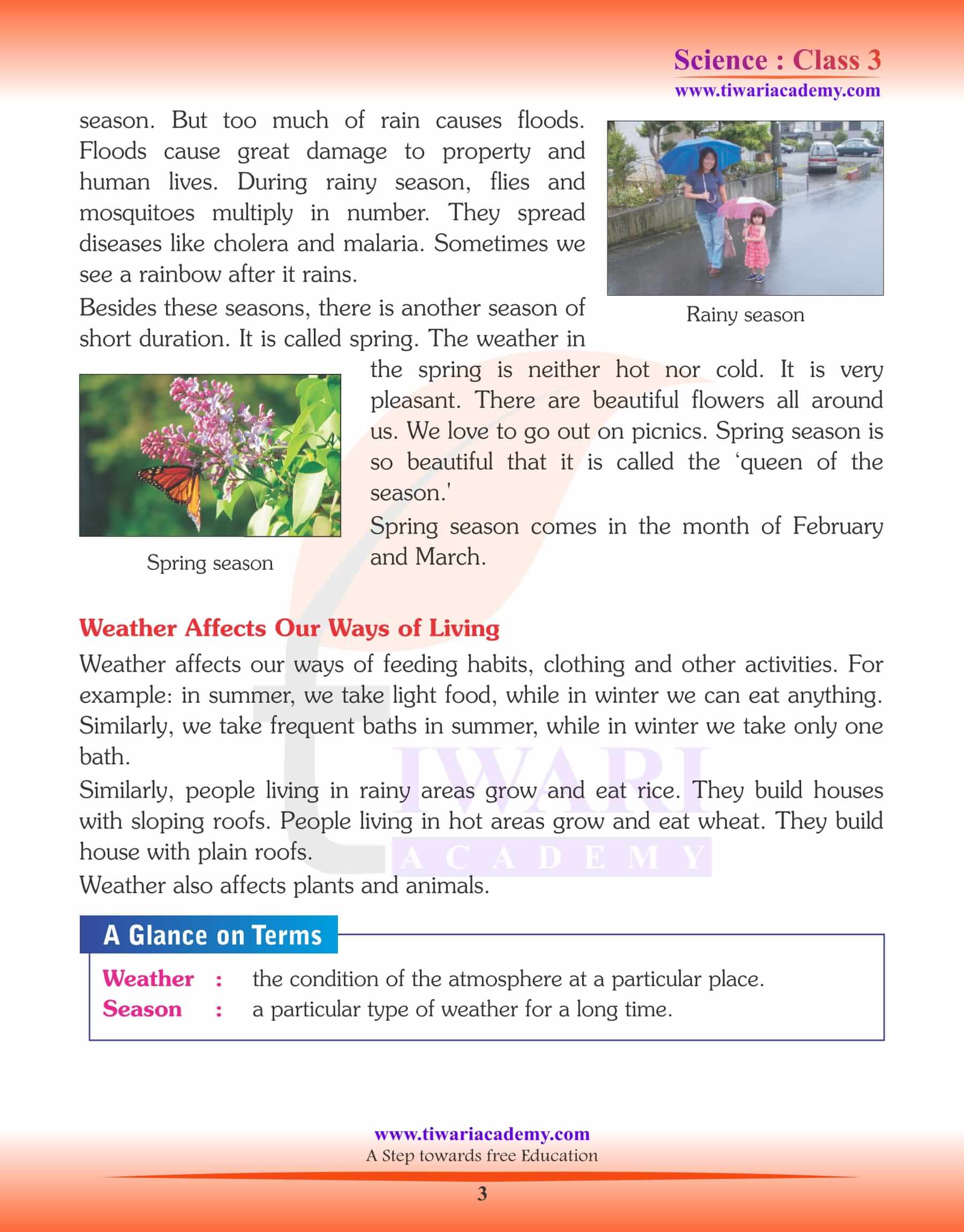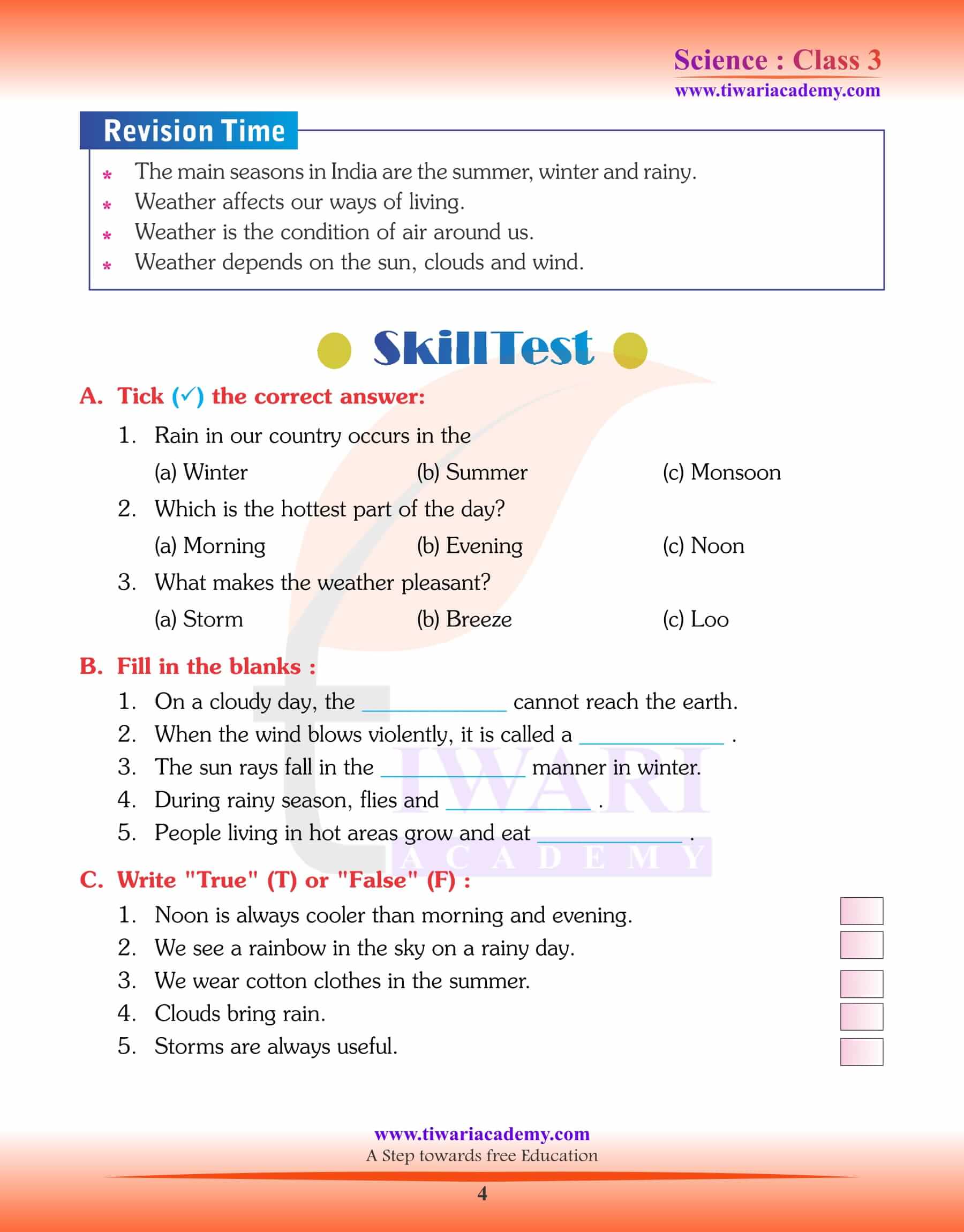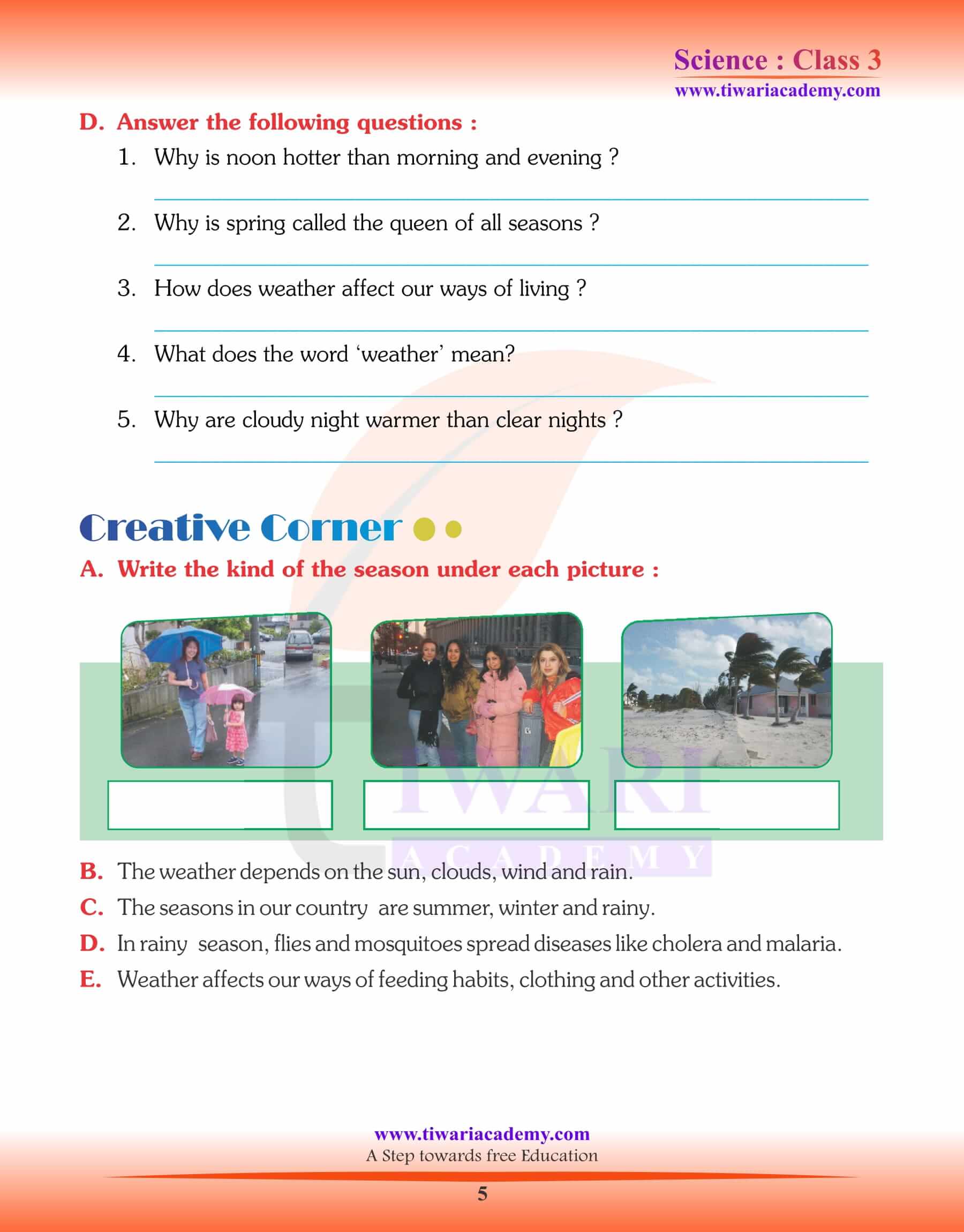NCERT Solutions for Class 3 Science Chapter 13 the Weather and its answers. The Science book is suitable for the 3rd standard in CBSE session 2024-25. This contains study material with suitable explanations. The practice questions given at the end of the chapter are also very helpful in exams. Students must practice the questions given here to make them confident.
Study Material for Class 3 Science Chapter 13
Class 3 Science Chapter 13 the Weather
The Weather
Weather means the condition of the air around us. If the air is hot, weather is warm. If the air is cool, weather is cold. Weather does not remain the same all-round the year. It changes from day-to-day. At some places, weather varies even the same day. For example, it may be hot in the morning, wet at noon and again hot in the evening. The weather depends on the sun, clouds, wind and rain.
The Sun
When the sun shines bright, the weather is hot. The sun shines at peak during the noon. So, noon is hotter than the morning and the evening.
The Clouds
On a cloudy day, the Sunrays cannot reach the Earth. So, cloudy days are cooler than the sunny days. But cloudy nights are warmer than the clear nights. It is because the clouds do not allow the heat of the Earth to escape from the atmosphere. Sometimes clouds bring rain. Rainy days are wet.
The Wind
Moving air is called wind. Wind also affects the weather. When the wind blows gently, it is called a breeze. Breeze makes the weather pleasant. When the wind blows violently, it is called a storm. Storms may uproot trees, lamp-posts and cause a great damage. Storms make the weather unpleasant.
Summer Season
The summer season is hot. The days are longer than the nights. In summer, the rays of the sun fall in slanting manner in the morning and evening. While at noon, they fall directly overhead. That is why the noon is hotter than the morning and the evening.
Winter Season
The winter season is cold. The days are shorter than the nights. The sun rays fall in the slanting manner in winter.
Rainy Season
The rainy season is wet. You can see dark clouds in the sky. They bring rain.
Spring season
Besides these seasons, there is another season of short duration. It is called spring. Spring season comes in the month of February and March. The weather in the spring is neither hot nor cold. It is very pleasant. There are beautiful flowers all around us.
Weather Affects Our Ways of Living
Weather affects our ways of feeding habits, clothing and other activities. For example: in summer, we take light food, while in winter we can eat anything. Similarly, we take frequent baths in summer, while in winter we take only one bath. Similarly, people living in rainy areas grow and eat rice. They build houses with sloping roofs. People living in hot areas grow and eat wheat. They build house with plain roofs. Weather also affects plants and animals.
Important Points
1. The main seasons in India are the summer, winter and rainy.
2. Weather affects our ways of living.
3. Weather is the condition of air around us.
4. Weather depends on the sun, clouds and wind.
Select correct option for given questions:
Fill in the blanks:
1. On a cloudy day, the ______ cannot reach the earth.
2. When the wind blows violently, it is called a _____.
3. The sun rays fall in the ______ manner in winter.
4. During rainy season, flies and ______.
5. People living in hot areas grow and eat ______.
Answers:
1. Sun rays
2. storm
3. slanting
4. mosquitoes
5. wheat
Write “True” (T) or “False” (F):
1. Noon is always cooler than morning and evening.
2. We see a rainbow in the sky on a rainy day.
3. We wear cotton clothes in the summer.
4. Clouds bring rain.
5. Storms are always useful.
Answers:
1. F
2. T
3. T
4. T
5. F
Why is noon hotter than morning and evening?
In summer, the rays of the sun fall in slanting manner in the morning and evening. While at noon, they fall directly overhead. That is why the noon is hotter than the morning and the evening.
Why is spring called the queen of all seasons?
The weather in the spring is neither hot nor cold. It is very pleasant. There are beautiful flowers all around us. That’s why spring called the queen of all seasons.
How does weather affect our ways of living?
Weather affects our ways of feeding habits, clothing and other activities. For example: we wear light and cotton cloths in summer but in winter we wear woolen cloths.
